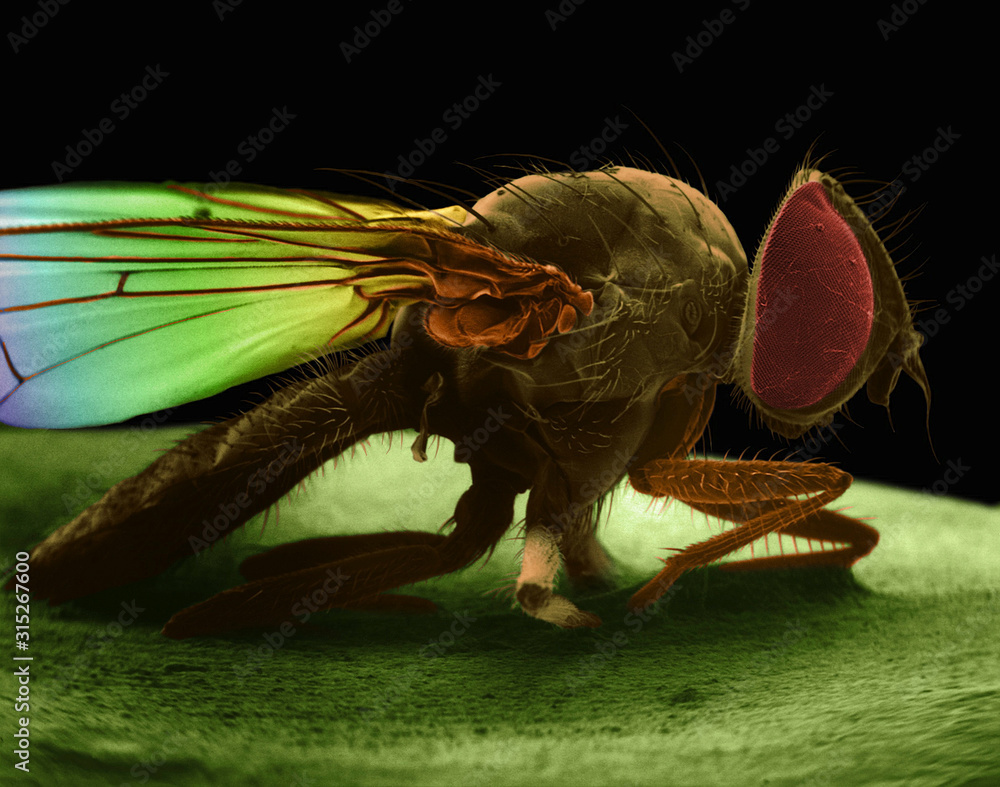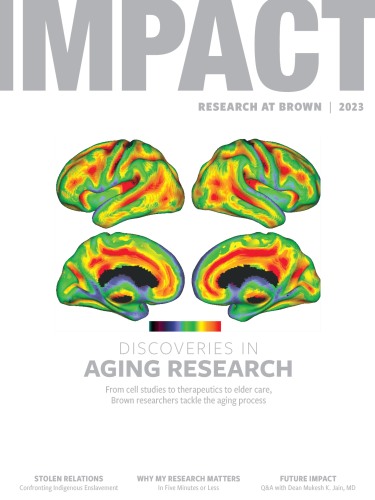How Drinkers Think
A Brown student finds clues in the brains of fruit flies about the mechanisms of addiction in humans.
A Brown student finds clues in the brains of fruit flies about the mechanisms of addiction in humans.
Although every person has their own reasons for drinking alcohol or using drugs, the neurobiological underpinnings of alcohol and substance abuse disorders remain a mystery. Eve Glenn’s research on fruit flies advances the understanding of what’s happening in the human brain that may contribute to addiction.
“ This is exciting as we now have an anatomical framework for investigating the structural and molecular changes associated with escalation of ethanol consumption ”
Glenn, who graduated from Brown in May 2022, studied neuroscience with a focus on neurobiological mechanisms of addiction and disease. Using the fruit fly as a model organism, she conducted independent research on self-administration and alcohol use disorders in the laboratory of Karla Kaun, an associate professor of neuroscience who is affiliated with Brown’s Carney Institute for Brain Science.

Glenn’s work delved into individual preference, allowing fruit flies to choose whether or not to self-administer ethanol. In collaboration with researchers in the Kaun Lab, Glenn identified a simple two-neuron circuit in the fruit fly’s brain that contributes to increasing ethanol self-administration. By inactivating the two neurons, she found short- and long-term changes in the fruit fly’s odor preference associated with alcohol intoxication.
“This is exciting as we now have an anatomical framework for investigating the structural and molecular changes associated with escalation of ethanol consumption,” Glenn said.
Glenn also looked for differences in neuronal structure between fruit flies that escalate and de-escalate their ethanol consumption using trans-Tango, a tool developed by Brown professor of neuroscience Gilad Barnea and his team. By visualizing how the two-neuron circuit structurally changes in the presence of ethanol, researchers may be able to further understand how this circuit contributes to the escalation of ethanol self-administration, Glenn said.
This research served as the basis for Glenn’s thesis. She is applying to medical school, where she hopes to focus on neurosurgery and neurology with the goal of working with marginalized and underserved patients.
In the meantime, Glenn is working as a research assistant studying amyotrophic lateral sclerosis (ALS) in fruit flies in the lab of Kristi Wharton, a Brown professor in the Department of Molecular Biology, Cellular Biology, and Biochemistry.
“In my undergraduate research I hypothesized applying any results to impulse control disorders that are seen in conditions like ALS,” Glenn said. “While I am not currently researching this in the Wharton lab, understanding biologically why we see the onset of substance misuse or an ALS-like phenotype in fruit flies could theoretically inform mechanisms in the other condition.”—SARA FEIJO & CORRIE PIKUL
